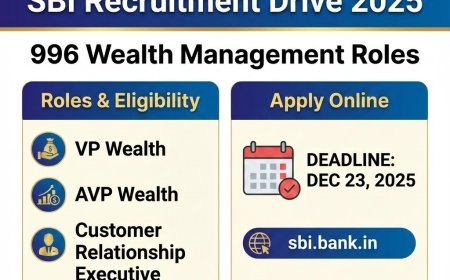IC90 - Human Resource Management (HRM)-8
IC90 - Human Resource Management (HRM)-8
Find More Mock Tests Here
Q 1. In the context of HRM, what is believed to be least important in the whole plan of HR development?
a) Employee motivation
b) Providing growth opportunities
c) Disciplining problem employees
d) Recognizing self-worth
e) Addressing economic factors
Q 2. What is the main purpose of succession planning within an organization?
A) To eliminate job vacancies entirely
B) To identify the weaknesses of existing employees
C) To prepare employees to take over important roles
D) To assess the capabilities of employees for future roles
E) To create a vacuum at important levels for new talent
Q 3. When is an "in-basket" exercise most appropriate as a selection tool?
A) For entry-level positions
B) For jobs involving routine tasks
C) For positions requiring extensive travel
D) For jobs at a high level involving policy decisions
E) For jobs with physical fitness requirements
Q 4. What is the role of a coach in the context of coaching and mentoring?
A) A coach is an experienced employee who provides tactical compliance to new employees.
B) A coach challenges the existing beliefs and values of the learner.
C) A coach is a colleague with more experience who helps a new employee learn a job.
D) A coach actively explores experiences with the learner.
E) A coach replaces the existing learning of values, beliefs, and assumptions with new learning.
Q 5. What does the "content of the change" refer to in the context of managing change?
A) The specific roles of individuals in the organization.
B) The nature of change and what the result should be.
C) The external factors influencing change.
D) The structural changes within the organization.
E) The availability of technology.
Q 6. What is the relationship between happiness, satisfaction, and the consistency of one's experience with expectations, as mentioned in the text?
A) Happiness and satisfaction are unrelated to the consistency of experience with expectations.
B) Consistency with expectations leads to unhappiness and dissatisfaction.
C) Happiness and satisfaction occur when the experience is consistent with expectations.
D) Expectations have no impact on happiness and satisfaction.
E) Consistency with expectations leads to anxiety and stress.
Q 7. How can a poorly monitored reward system affect people's behavior, according to the text?
A) It can lead to excessive work.
B) It encourages employees to seek promotions.
C) It enhances teamwork.
D) It may convey the wrong messages and lead to improper behavior.
E) It has no impact on behavior.
Q 8. What is filtering similar to in the behavior of children?
A) Filtering is similar to children sharing all information with their teachers and parents.
B) Filtering is similar to children's honesty and transparency.
C) Filtering is similar to children hiding some information from their teachers or parents to avoid unpleasant situations.
D) Filtering is similar to children always following instructions without question.
E) Filtering is similar to children seeking clarification when they don't understand something.
Q 9. What is a key aspect of leadership mentioned in the text regarding the motivation of followers?
A) Leaders are not concerned with the motivations of their followers.
B) Leaders must kindle the needs and motivations of their followers.
C) Leaders only focus on their motivations.
D) Leaders can assume that their followers are always motivated.
E) Motivations of followers are not relevant to leadership.
Q 10. Which term is sometimes used interchangeably with "power" in leadership, emphasizing its nature?
A) Authority
B) Position
C) Influence
D) Reward
E) Punishment
Q 11. What is the primary principle involved in taking care of disciplinary problems?
a) Make disciplinary action punitive rather than corrective.
b) Make disciplinary action quick and impersonal.
c) Begin disciplinary action with salary cuts.
d) Apply disciplinary rules impartially.
e) Keep disciplinary action personal.
Q 12. What does the principle of natural justice require before giving punishment?
a) Providing a warning to the employee
b) Investigating the breach of discipline
c) Ensuring a fair opportunity for the employee to explain
d) Recovering misappropriated funds
e) Enforcing strict disciplinary action
Q 13. What are some items that are strictly prohibited according to the code of ethics mentioned in the passage?
a) Offering discounts to customers
b) Non-adherence to safety and quality standards
c) Promoting healthy competition in the industry
d) Providing bonuses to employees
e) Offering rewards for outstanding performance
Q 14. How does the passage characterize the nature of change in present times?
a) Incremental and predictable
b) Disruptive and non-incremental
c) Slow-paced and predictable
d) Incremental and disruptive
e) Unpredictable and non-disruptive
Q 15. How does specialization in tasks benefit an organization, as mentioned in the text?
a) It encourages variation in service
b) It promotes ad-hoc actions by employees
c) It hinders the development of expertise
d) It helps the speedy and accurate performance of tasks as well as the development of expertise
e) It leads to inconsistency in operations
Find More Mock Tests Here



